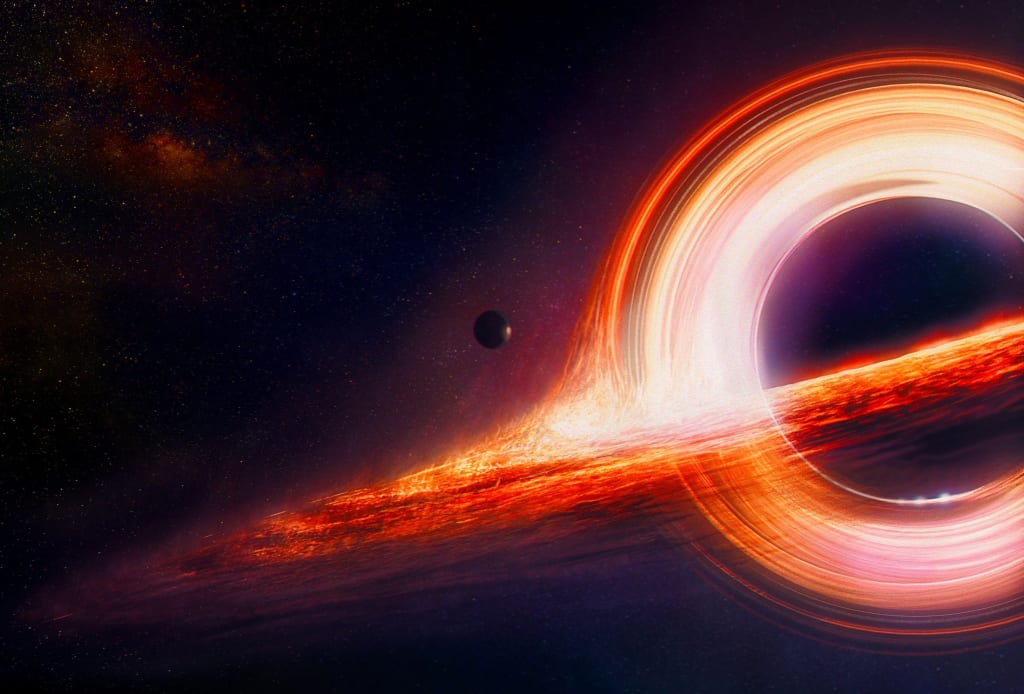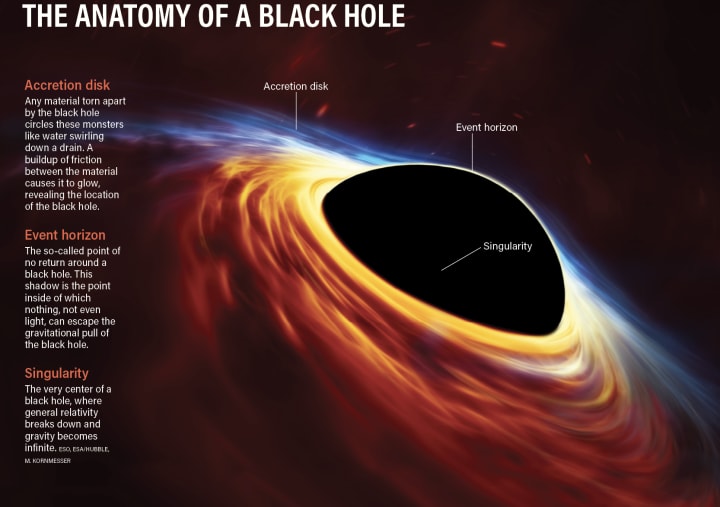
Black holes are some of the most fascinating and mysterious objects in the universe. They are often portrayed in popular media as enormous voids that swallow up everything in their path, including light itself. But what exactly is a black hole, and how do they form?
A black hole is a region in space where the gravitational pull is so strong that nothing can escape it, not even light. This region is known as the event horizon, and anything that crosses it is doomed to be pulled into the black hole's singularity, a point of infinite density at the center of the black hole.
Black holes come in a variety of sizes, from tiny black holes that are less than a millimeter in size to supermassive black holes that are billions of times the mass of our Sun. Scientists believe that black holes form when massive stars run out of fuel and collapse under their own gravitational pull. This collapse creates an incredibly dense object with a gravitational pull so strong that it traps all matter and energy within its event horizon.
One of the most fascinating aspects of black holes is that they warp space-time, the fabric of the universe. This is due to the extreme gravitational pull of the black hole, which curves the fabric of space-time in its vicinity. This warping effect causes light to bend as it passes through the region around the black hole, a phenomenon known as gravitational lensing. Gravitational lensing can also create multiple images of the same object, as light is bent and redirected by the black hole's gravity.
Another fascinating aspect of black holes is that they can emit radiation, known as Hawking radiation. This radiation is caused by the quantum effects near the event horizon, where particles are created and destroyed in pairs. When this happens, one of the particles is pulled into the black hole, while the other escapes as radiation. Over time, this radiation causes the black hole to lose mass and eventually evaporate.
The study of black holes has led to many important discoveries in astronomy and astrophysics. For example, observations of the orbit of stars around the supermassive black hole at the center of the Milky Way have provided strong evidence for the existence of black holes. This research has also shed light on the role of black holes in galaxy formation and evolution.
Despite our growing understanding of black holes, there is still much that we don't know. For example, scientists are still trying to understand the relationship between black holes and the fundamental laws of physics, such as the theory of relativity and quantum mechanics. Additionally, the study of black holes is hindered by the fact that they are incredibly difficult to observe directly. Black holes themselves do not emit any light, so they can only be detected by observing their effects on nearby matter, such as stars and gas.
Fortunately, advances in technology are making it possible to observe black holes in more detail than ever before. In 2019, the Event Horizon Telescope (EHT) collaboration released the first-ever image of a black hole, located in the center of the galaxy M87. This groundbreaking image was created by combining data from eight telescopes located around the world to create a virtual telescope the size of the Earth.

The EHT image showed a bright ring of light surrounding the black hole's event horizon, known as the photon ring. This ring is created by the intense gravitational forces of the black hole, which cause gas and dust to heat up and emit radiation. The EHT image confirmed many predictions of the theory of relativity, including the shape of the photon ring and the presence of a black hole's shadow.
In conclusion, black holes are some of the most fascinating objects in the universe, and their study has led to many important discoveries in astronomy and astrophysics. They are formed by the collapse of massive stars and have a gravitational pull so strong that nothing
About the Creator
Ferid Xelefov
i am a doctor






Comments
There are no comments for this story
Be the first to respond and start the conversation.